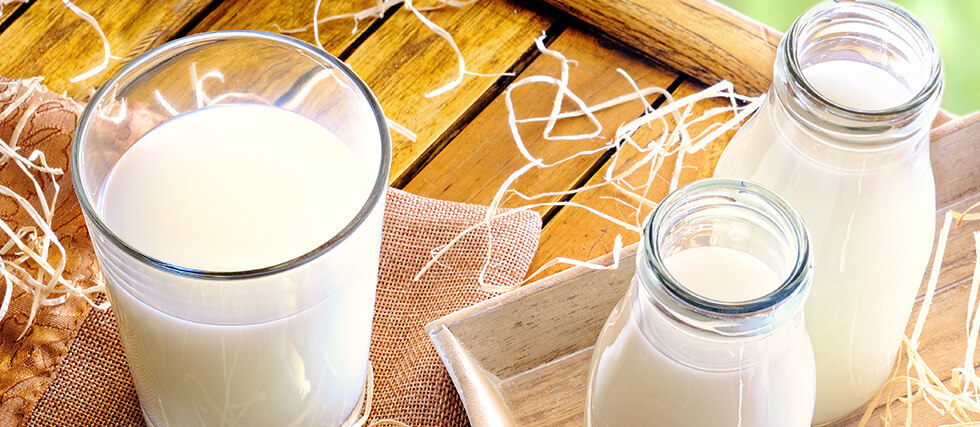Milk has been a dietary staple for centuries, but in recent years, many have questioned whether traditional cow milk is still the best option. As consumers become more health-conscious, new alternatives are emerging – including goat milk, which has been used worldwide for generations but is only now gaining mainstream popularity in the U.S.
If you’ve ever strolled through the dairy aisle, you’ve probably noticed goat milk creeping onto more shelves alongside traditional cow milk. But is this just another health trend, or does goat milk offer superior nutrition, easier digestion, and better health benefits?
With claims that it’s easier on the stomach, richer in nutrients, and even more sustainable, goat milk is making a serious case for itself. But how does it compare to the dairy powerhouse, cow milk?
In this post, we break it down nutritionally, digestively, and flavor-wise to see which one truly deserves the crown in the milk kingdom.
Nutritional showdown
Both goat and cow milk offer essential vitamins and minerals, but their nutrient profiles aren’t identical.
| Nutrient | Goat Milk (per 1 cup) | Cow Milk (per 1 cup) |
| Calories | 168 | 150 |
| Protein | 9g | 8g |
| Fat | 10g | 8g |
| Calcium | 327mg | 276mg |
| Lactose | Lower | Higher |
| Vitamin A | More | Less |
| Vitamin B12 | Less | More |
The Winner? It depends!
- Goat milk packs more protein, fat, and calcium, which is great for those needing extra nourishment.
- Cow milk has more B12, which is crucial for red blood cell formation.
Digestibility & lactose sensitivity
If you have dairy-related stomach troubles, goat milk might be your hero.
- Goat milk has smaller fat globules and different proteins, making it easier to digest.
- It contains less lactose than cow milk, making it a better option for those with mild lactose intolerance (but still unsuitable for those with a true dairy allergy).
The Winner? Goat Milk!
If cow’s milk makes your stomach rebel, goat milk is a gentler alternative.
Taste & texture: What’s the difference?
Cow milk is mild, creamy, and familiar.
Goat milk has a richer, slightly tangy flavor with a creamier texture—some love it, but others need time to adjust.
The Winner? Personal Preference!
If you’re used to traditional dairy, cow milk wins. But if you like experimenting with flavors, goat milk brings a unique twist.
Sustainability & ethics
Goat farming has a lower environmental footprint than industrial cow dairies. Goats require less land, water, and food, making their milk a more eco-friendly choice. If you are thinking of producing your milk, remember that dairy goats are generally easier to care for than dairy cows.
The Winner? Goat Milk!
Better for the planet = better for the future.
Final Verdict: Which One Should You Choose?
Goat Milk is Best If:
✅ You have mild lactose intolerance
✅ You want easier digestion
✅ You prefer a creamier texture
✅ You care about sustainability
Cow Milk is Best If:
✅ You love the traditional dairy taste
✅ You need more B12 in your diet
✅ You want a more affordable option
Bottom Line: Which One Should You Choose?
At the end of the day, goat and cow milk have their strengths, and the best choice depends on your body, taste preferences, and dietary needs.
Goat milk takes the crown if you want a more digestible, nutrient-dense option. It’s easier on the stomach, packed with essential minerals, and an excellent alternative for those who experience lactose sensitivity. Plus, it’s more sustainable and eco-friendly, making it a solid choice for those who care about their health and the planet.
On the other hand, cow milk remains the traditional favorite – it’s more widely available, often more affordable, and provides a good dose of B12, which is essential for energy and brain health. There’s no reason to switch if you have no trouble digesting dairy and enjoy its familiar creamy taste.
Ultimately, the best way to decide is to try them and see which works best for you. Who knows? Goat milk might surprise you and become your new go-to.
So, which will you pour into your next cup of coffee?




